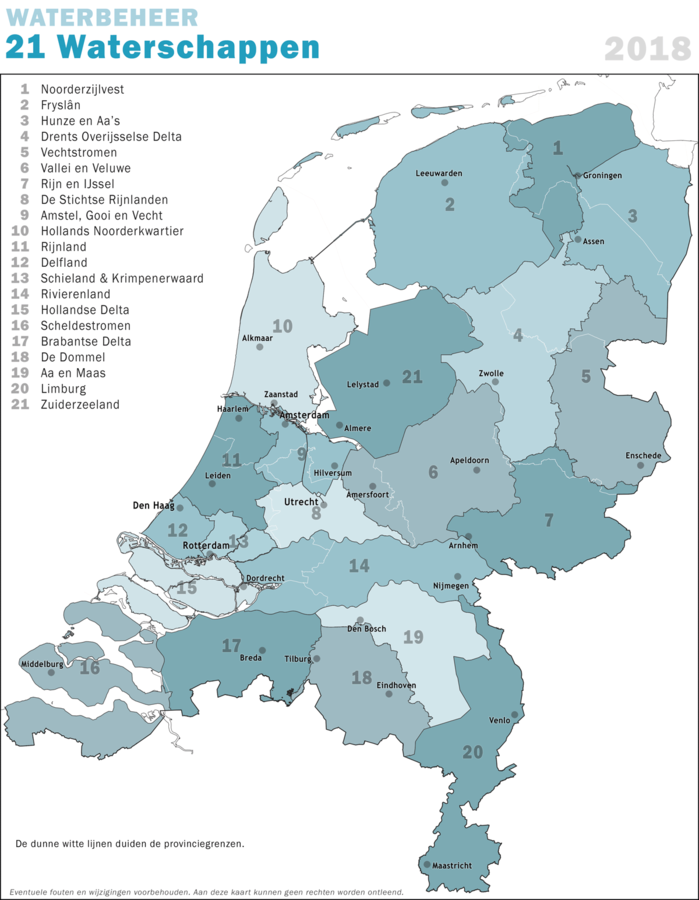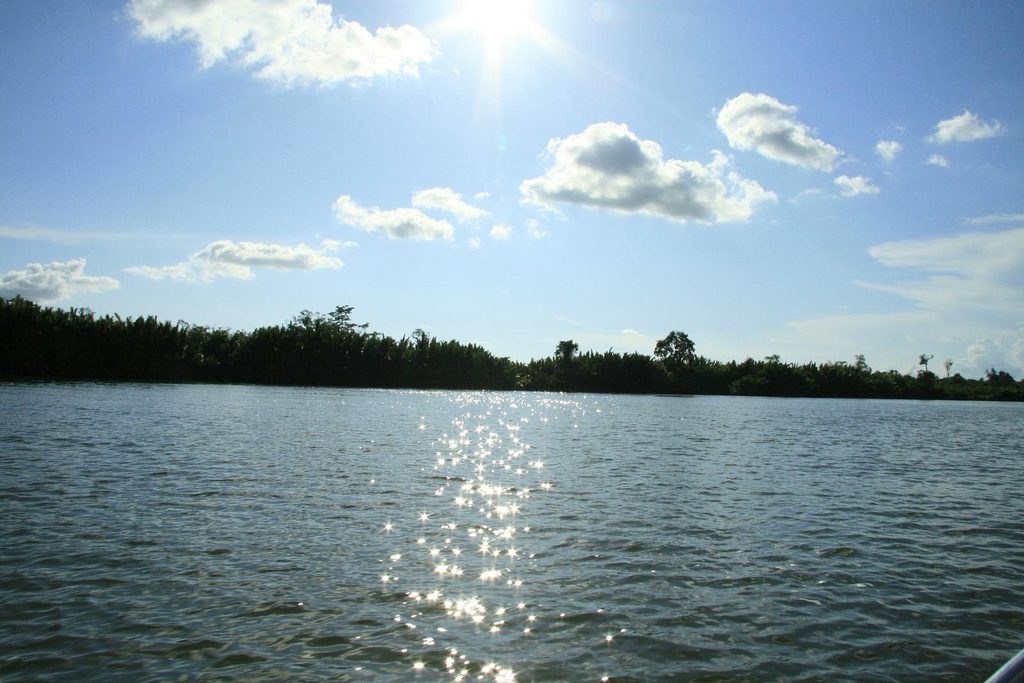What are the Dutch Waterschappen? Posted by Sten on Feb 18, 2019 in Dutch Vocabulary, News
De Waterschappen. If you live in the Netherlands, you have undoubtedly heard of these institutions. But what exactly are they? What are their responsibilities? And why do the Dutch get to vote for their waterschappen in an election alongside the provincial elections?
De taak van een waterschap
So, first of all – what is a waterschap? A waterschap (literally “watership”, a “water board”) is a regional organisation that is verantwoordelijk (responsible) for the waterhuishouding (water management) in an region. For example, it makes sure that drinkwater (drinking water) is of good quality and that the country is kept dry. Because remember: A big part of the Netherlands is below sea level. And that makes these waterschappen extremely important for the Dutch.
Waterschappen are sometimes also referred to as hoogheemraadschappen for historical reasons.
Waterschapsverkiezingen
The waterschapsverkiezingen (water board elections) are held on March 20, 2019, alongside the verkiezingen for the provinciale Staten (States-Provincial, provincial governments that elect the representatives in the Eerste Kamer, the Dutch Senate). Holding the elections alongside a more important election has led to a higher voter turnout in the past.
However, such a waterschap sounds like a regular governmental body – so why the elections?
There is a substantial waterschapsbelasting that is spent by the waterschappen to determine how water is cleaned and managed. Even though it is all about the water domain, there are some political differences. For example, the Partij voor de Dieren (Party for Animals) will push for much more animal-friendly and environmentally sustainable use. In contrast, other parties may only care to keep the costs as low as possible, no matter the implications.
“Water is actueler dan ooit”
“Water is actueler dan ooit” (“Water has never been this trending”). These words come from Gerhard van den Top, who is dijkgraaf (“dyke duke”). A dijkgraaf, as he explains, is basically a burgemeester van het waterschap (mayor of the water board).
And why is water such a hot topic? Last summer, the Dutch were shocked by a droge zomer (dry summer) and strong rains. Many crops failed, grass turned brown from the usual green in the usually cooler Dutch summer. It made them painfully aware that good water management is very important for the survival of their country. And that has increased interest and the opkomst (voter turnout) substantially.
Let’s see what the turnout will be this year! In any case, we can be thankful that there are waterschappen in the Netherlands that keep everybody’s feet dry!
Do you have a waterschap or similar body in your country? Do you also hold elections for them? What do you think about that? Let me know in the comments below!

Build vocabulary, practice pronunciation, and more with Transparent Language Online. Available anytime, anywhere, on any device.






Comments:
M. Halma:
The caption under the map of Waterschappen says: “As you can see, they loosely correspond with the 16 provinces of the country.” Can the author name the other 4 provinces which don’t exist?
Sten:
@M. Halma 12, of course! I had the German Bundesländer in mind…
Thanks for the correction!
anna:
Thank you so much for explaining and providing some background information!
I did not vote today, as I was not sure what the waterschap election was about, but I will do it next time if I am still living in the Netherlands and will discuss withmy Dutch collegues soon about how to best inform myself. Thank you already and best fron Leiden!